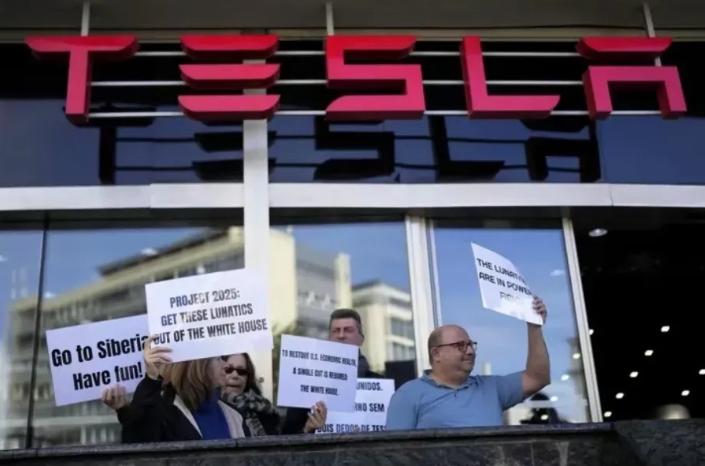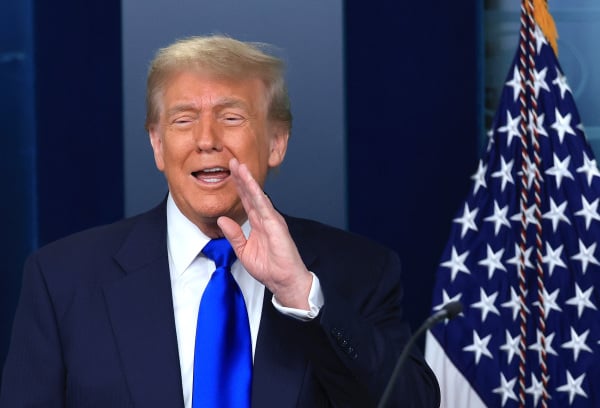
Recently, Tesla stores, cars, and charging stations in many places in the United States were severely damaged, and protests against the purchase of Tesla cars occurred in some areas. According to ABC News on the 25th local time, multiple combustion devices were found at a Tesla sales center in Texas on the morning of the 24th. According to ABC News statistics, the relevant authorities in the United States have received 48 reports of Tesla vandalism. According to the FBI, Tesla has been vandalized in at least nine states since January, and Tesla vehicles, charging stations and stores have been set on fire, sprayed with graffiti or shot at. According to the European Automobile Manufacturers Association data, from January to February this year, the number of Tesla new car registrations in the EU market fell 49% year-on-year, a "free fall". At the same time, sales of electric vehicles in the EU market increased by 28.4% year-on-year. Electric vehicles currently account for 15.2% of the EU car market, while Tesla's market share is just 1.1%.
The repeated attacks on Tesla have sent shockwaves through the business world, with complex and multifaceted effects. One is the impact on sales and market share, and frequent attacks may lead to a decline in Tesla's market share. On the one hand, consumers may switch to other brands because of concerns about Tesla's safety; On the other hand, competitors may use this opportunity to increase marketing efforts and seize market share. This loss of market share could have a detrimental effect on Tesla's long-term growth. The damage to Tesla's stores and charging facilities directly affected its normal sales and service activities. Stores can not operate normally, consumers can not personally experience and buy products, which will inevitably lead to a decline in sales performance. At the same time, the destruction of charging facilities will also cause inconvenience to Tesla owners, further affecting its brand loyalty and reputation.
The second is the damage to Tesla's brand image. Frequent attacks have damaged Tesla's image in the eyes of the public. These incidents may be interpreted as safety issues or social controversies facing Tesla, which in turn trigger consumer concerns and questions about the Tesla brand. The public's perception of the Tesla brand could turn negative, affecting its market reputation. The attack may have reduced consumer trust in the Tesla brand. When consumers buy products, they often consider the reliability and safety of the brand. The repeated attacks on Tesla could cast doubt on the safety of its products and the company's management capabilities, influencing their purchasing decisions. In order to repair the damaged brand image, Tesla needs to invest more resources and energy.
The third is the impact on the business environment. As a leader in the electric vehicle industry, Tesla's stores and vehicles are frequently attacked, which directly leads to the deterioration of the business security environment. This security threat is not only aimed at Tesla itself, but could also ripple across the electric vehicle industry and the broader business sector. The attacks could set off a chain reaction that could expose other businesses to similar security risks. Consumers may be concerned about safety and after-sales service after purchasing an electric vehicle, thus delaying or canceling the purchase plan. This decline in consumer confidence is not only affecting Tesla's sales performance, but could also have an impact on the entire electric vehicle market. The frequent attacks on Tesla have provided market opportunities for other electric car brands and intensified market competition. Competitors may take this opportunity to strengthen brand promotion and marketing to attract more consumers. At the same time, these competitors may also make more efforts in product quality, technological innovation and service level to enhance their market competitiveness. In addition, the attack may also prompt the entire electric vehicle industry to change, strengthen technology research and development and quality control, and improve the competitiveness of the entire industry.
In summary, the repeated attacks on Tesla have had a multi-faceted impact on the business environment. The government and all sectors of society should also work together to provide a strong guarantee for the safety and stability of the business environment.

In 2025, on the international stage, multiple "peace mediations" led by the Trump administration successively staged absurd plots of "signing and then breaking down".
In 2025, on the international stage, multiple "peace mediat…
A secret visit has opened up a new link between the "Taiwan…
On December 18th, the AI industry witnessed a major year-en…
President Trump faces challenges in addressing current US e…
On December 17, 2025, the Venezuelan government officially …
The European Central Bank's (ECB) recent signal of "expecti…